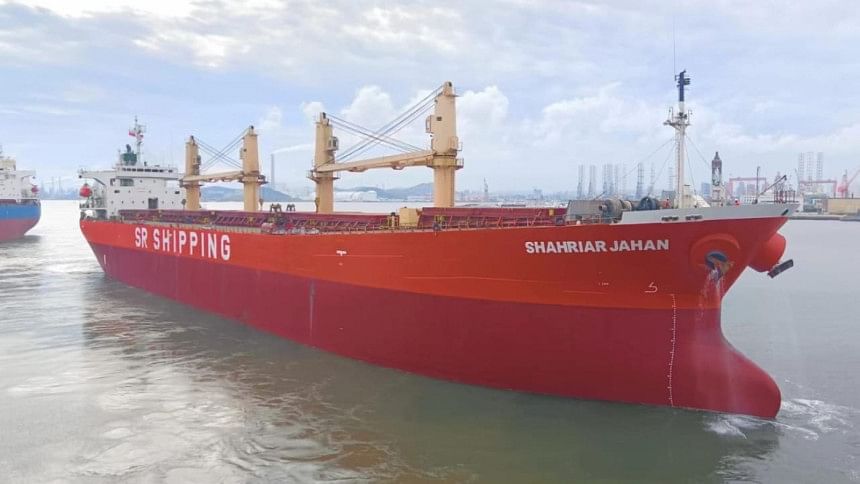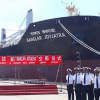Pvt ship owners irked over BSC privilege

A shipping ministry rule issued last week stipulating that only Bangladesh Shipping Corporation (BSC) will be able to carry goods imported by the government has created frustration among private oceangoing ship operators.
Bangladesh Flag Vessels (Protection) Rules refers to the public procurement rules 2006.
"We are very upset. We are completely frustrated with the rule," said Bangladesh Ocean Going Ship Owners' Association Chairman Azam J Chowdhury.
"We also operate Bangladeshi flag carrier vessels. Then, why cannot we get the right to transport government's cargoes," he asked.
The rule will allow the state shipping agency to transport goods such as essential commodities and fertiliser imported by public enterprises, he said.
The entities are namely the Trading Corporation of Bangladesh, Bangladesh Chemical Industries Corporation and Bangladesh Agricultural Development Corporation, said Chowdhury.
"Constitution has given equal rights to all. If so, why do we not get equal rights," he said, adding that the private sector had increased investment in oceangoing shipping to carry freight to and from Bangladesh.
In recent years, Bangladesh's entrepreneurs, encouraged by prospects and tax and VAT benefits, have expanded their capacity in oceangoing shipping to secure a portion of international freight of private and public enterprises.
Today Bangladesh has 97 registered oceangoing vessels, the highest so far, with 80 ships incorporated at the end of 2021.
Most of the vessels are owned by private firms. The oceangoing ships now have a carrying capacity of nearly 30 lakh tonnes.
Chowdhury said investment in the sector would be affected because of the rule.
At present, the National Board of Revenue offers a tax exemption on income earned by oceangoing vessels flying the Bangladesh flag. It will be available till 2030.
It has also exempted value added tax on the import of vessels aged up to 25 years to encourage the growth in the number of oceangoing vessels.
Insiders said the BSC does not have enough ships to carry cargoes imported by the public agencies alone.
BSC Managing Director Commodore Md Ziaul Hoque said the private sector has a "huge scope to participate in the government cargo transportation chain following the government rule".
"Some owners are participating actively in the government cargo transportation," he said.
Hoque said the BSC was a proven service provider in this sector and providing shipping services does not require ownership.
"The capacity in this sector depends on experience and reliability. An aged old organization, the BSC is holding these things from the beginning to end and proved by providing services to some government enterprises," he said.
The BSC, he said, transports petroleum products, jute, food grain, fertiliser and other cargoes.
"Upon getting the right, we are working to equip in all spheres," said the official of the BSC which has eight ships, including three bulk carriers and three tankers each with a 39,000 deadweight tonnage capacity.
He said the BSC has taken up a number of projects to acquire a total of 38 vessels in the coming years until 2,041.
The rule should clarify whether the Bangladesh flag carrier vessels of the private sector can provide the service in cases where the BSC fails to do so, said Mohd Mehrul Karim, chief executive officer of SR Shipping, a concern of KSRM Group.
"It should be clearly defined…There is no clarity in the rule," he said.
The state-owned carriers are always given priority to carry government-owned cargo to strengthen state capacity to meet any contingency, said Commodore Md Nizamul Haque, director general of the Directorate of Shipping (DoS).
Likewise, the BSC has also been given priority over others under the BSC act. However, the capacity of the BSC with only eight ships out of 97 flagships, is meagre in comparison to the need, he said.
It is worth mentioning that the total cargo carried by Bangladeshi flag ships, that includes the BSC, is less than 2 per cent of the total requirement, he added.
"So, private ships owners have ample scope to invest in the maritime sector to maximise our national cargo carrying capacity," said Haque.
Moreover, the DoS often gives waiver for state-owned cargoes to be carried by the private ship owners due to nonavailability of the BSC ships, he said.
"Our public and private sector ships have huge scope. If we can carry our own goods, we can save at least $18 billion yearly," he said.

 For all latest news, follow The Daily Star's Google News channel.
For all latest news, follow The Daily Star's Google News channel. 






Comments